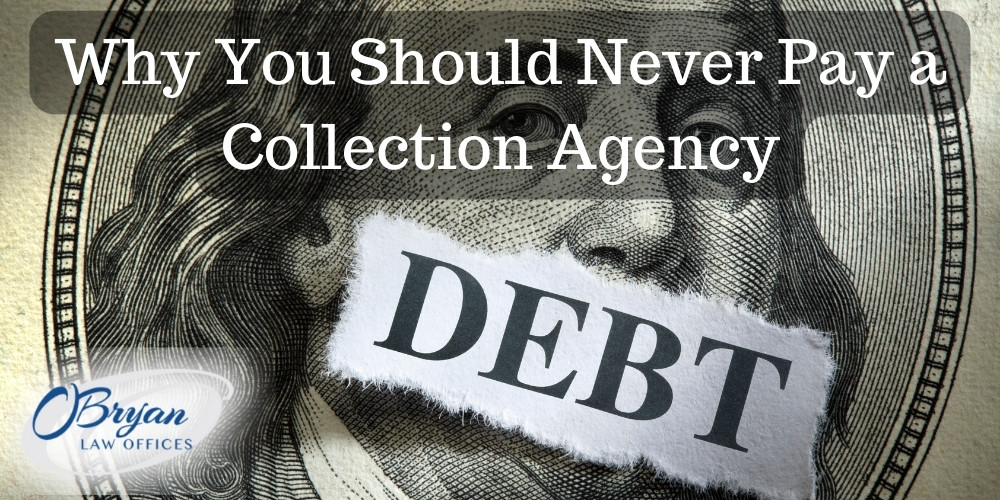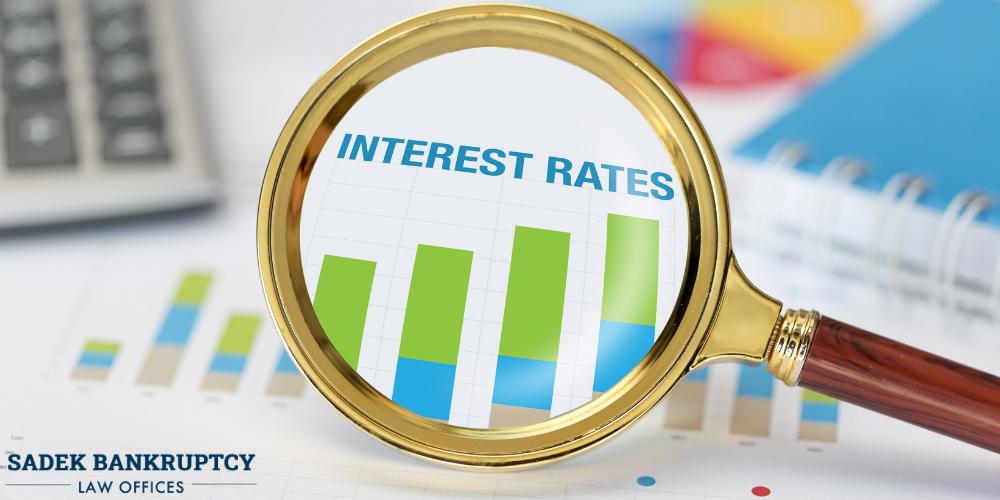It can be very stressful and scary to deal with debt collectors. When they call to demand payment, you may feel overwhelmed and not know what to do. You should take debt collection seriously, but you also need to know your rights and options. It’s not always the best idea to pay a collector right away. People should not pay debt collectors until they fully understand their situation. This is for a number of important reasons.
Debt Collectors Often Use Questionable Tactics
The debt collection industry has gained a reputation for overly aggressive and even illegal tactics to get people to pay. Collectors may harass you with constant phone calls, threaten lawsuits or other actions they have no authority to take, or lie about the consequences of non-payment. Some even illegally tack on extra fees and interest above what you actually owe.
The Fair Debt Collection Practices Act protects people from being tricked or harassed by debt collectors. But many collectors still cross the line. That’s why you shouldn’t believe their threats or feel compelled to pay them right away. Always know your rights first.
You Could Pay the Wrong Collector
Debt collection agencies buy and sell delinquent accounts all the time. The one contacting you may not be who you originally owed They may lack proper documentation to prove you owe them anything
Always verify the name of the original creditor and get written proof from the collector that they now own your debt If they can’t validate it adequately, you shouldn’t pay them a cent
Paying Could Revive Expired Debt
Each state has statutes of limitations on how long collectors can sue you to recover different kinds of debts. If that time limit has passed, they often cannot successfully take legal action. However, in many states even a small partial payment can restart the clock and essentially bring the debt back to life.
Never pay collectors on expired debt. Before you make a payment or promise to pay, check to see if the time limit has passed.
You Could Settle for Much Less
Collectors buy overdue accounts from original creditors for pennies on the dollar, often as low as 5% of the total owed. They want to profit by collecting the full balance from you, with added fees and interest.
But you can negotiate a settlement for significantly less – sometimes 50% or more off the claimed balance. Get settlement terms in writing before paying collectors anything.
Paying May Not Help Your Credit Much
A lot of people pay collections because they think it will make their credit score better. But that bad mark can stay on your report for years after you pay it off. Any score increase could take a long time.
Don’t pay just to try boosting your credit score. Know the real impact first, and focus on other ways to rebuild credit.
You Have Other Options to Resolve Debt
Rushing to pay collections can trap people in a financial hole. But other alternatives exist, like debt management plans, debt consolidation loans, credit counseling, debt settlement, and bankruptcy.
Consider all options for dealing with collectors, not just writing a check. Find the resolution method best for your situation.
How to Proceed with Debt Collectors
When facing collections, take steps to protect yourself:
-
Don’t ignore calls or letters. This only makes the situation worse. Contact collectors to resolve matters.
-
Dispute any invalid debts. Request written validation if you don’t recognize the debt.
-
Know your rights. Collectors must follow laws about when and how they contact you.
-
Negotiate for settlements. Offer less than the full balance based on what you can afford.
-
Get promises in writing. Require collectors to put any payment plans or settlements in writing.
-
Consult credit counselors or attorneys. They can advise you on the wisest options.
-
Consider alternatives like debt management or bankruptcy. Paying immediately may not be your best choice.
The Bottom Line
Debt collectors rely on pushing people into hasty payments out of stress and intimidation. But you should take time to understand your rights, research your options, and make smart choices. With the right approach, you can take control of debt and improve your financial situation at your own pace.

What Happens If You Don’t Pay a Collection Agency?
If you don’t pay a debt collection company, several consequences may occur. The debt will likely continue to accrue interest and fees, increasing the total amount owed over time. Persistent attempts to collect the debt may result in increased pressure from the collector, including frequent phone calls, letters, or even legal actions such as a debt collection lawsuit.
If you ignore these efforts, you could end up in even more financial trouble, have your wages garnished, or have your assets taken away by a court order. Additionally, the debt may remain on your credit report for up to seven years, negatively impacting your credit score and future financial opportunities. It’s crucial to address the debt promptly, even if you’re unable to pay it in full.
Yes, a collection agency can charge interest on a missed monthly payment. However, whether this is legal for them to do depends on state laws and the terms of the original contract. If the original contract allows for interest to accrue on the debt, they can charge interest. Read the original agreement carefully and become familiar with all state laws that apply to know what your rights are when it comes to interest charges.
This depends on the specific situation you’re in. If the debt is still with the original creditor, you’re better off paying them. If, on the other hand, the original creditor sold the debt to a collection agency, it is probably easier to pay that agency directly. Before deciding whether to pay the debt at all, consult with an experienced bankruptcy attorney about your case. They can help you understand your rights and options, as well as determine the best course of action.
Can a Debt Collector Charge Interest?

Yes, a debt collector can charge interest on the outstanding debt, but whether they can legally do so depends on various factors, including the terms of the original contract and state laws. If the original contract allows for interest to accrue on the debt, the collector may continue to apply interest according to those terms.
Additionally, some state laws may regulate the amount of interest that can be charged on a debt. It’s essential to review the terms of the original agreement and familiarize yourself with relevant state regulations to understand your rights and obligations regarding interest charges by debt collectors.
If a debt collector refuses payment, it could be for various reasons. They may believe the debt is not valid, dispute the amount owed, or require documentation before accepting payment. In some cases, they might be prohibited from accepting payments due to legal restrictions or internal policies.
However, if you believe the debt is legitimate and wish to resolve it, you could persist in your efforts to make payment. Document your attempts to pay and seek clarification on why the collector is refusing payment. If necessary, consult with a consumer rights attorney to understand your options and ensure your rights are protected.
Do NOT Pay Collections Agencies | Debt Collectors EXPOSED
FAQ
Why should you never pay a debt collector?
Paying an old collection debt can actually lower your credit score temporarily. That’s because it re-ages the account, making it more recent again. This can hurt more than help in the short term. Even after it’s paid, the negative status of “paid collection” will continue damaging your score for years.
What is the 777 rule with debt collectors?
The 7-in-7 rule, also known as the 777 rule or 7×7 rule, is a guideline in debt collection that limits how often a debt collector can contact a person about a particular debt. Specifically, it means a collector cannot call a consumer more than seven times within a seven-day period about the same debt.
Should I pay off a debt collector?
If you want to get a mortgage, car loan, or other big loan, paying off debts that are in collections can help your chances of getting approved. Lenders scrutinize your credit report and collections accounts can be red flags indicating financial instability.
Should you pay the debt collector or the original creditor?
Usually, it’s better to pay the original creditor than a debt collector. However, it depends on whether the debt was sold or given to the collection agency. If the original creditor still owns the debt, they might be more flexible in negotiating payment terms or offering a payment plan.
